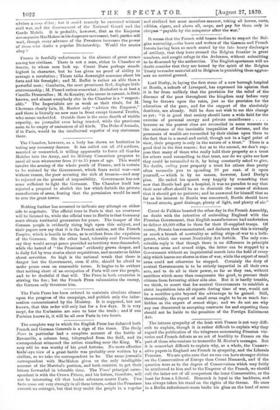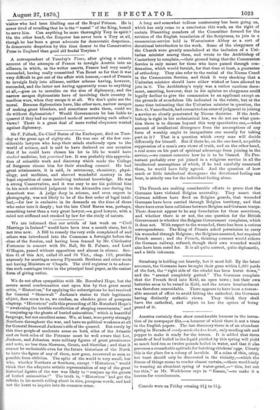The intense sympathy of the Irish with France is not
very diffi- cult to explain, though it is rather difficult to explain why they regard the publication of the telegrams announcing Prussian vic- tories and French defeats as an act of hostility to France on the part of those who venture to transcribe M. Reuter's messages. But it is somewhat difficult to explain why, as a whole, the Conserv- ative papers in England are French in sympathy, and the Liberals Prussian. We are quite sure that no one can have stronger claims on the Conservatives of Europe than Count Bismarck, and if the question were as to the degree of Conservatism which may fairly be attributed to him and to the Emperor of the French, we should call the latter out of all comparison the laxer Conservative, or the least far from a Liberal. Bismarck is loyal to the backbone, and has always taken his stand on the rights of the throne. He once in a Berlin refreshment-room broke his glass on the head of some
visitor who had been libelling one of the Royal Princes. He is never tired of recalling that he is the " vassal " of the King, bound to serve him. Can anything be more thoroughly Tory in spirit? On the other hand, the Emperor has never been a Tory at all, though he has been a great advocate for democratic despotism. Is democratic despotism by this time dearer to the Conservative Press in England than good old feudal Toryism ?































 Previous page
Previous page